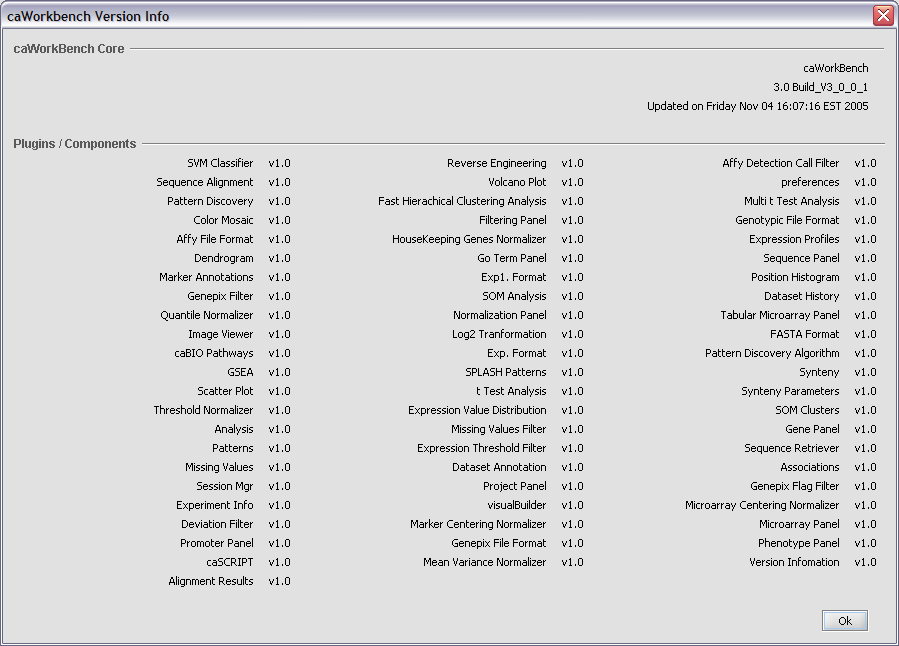Difference between revisions of ".GEAR files"
(→Creating a .GEAR file) |
|||
| Line 5: | Line 5: | ||
== Creating a .GEAR file == | == Creating a .GEAR file == | ||
| − | There is an ant task that will create a .GEAR file automatically. Run ant with | + | There is an ant task that will create a .GEAR file automatically. Run ant with “ant –Dcomponent=NAME” which will create a .gear file from the specified component directory. You can also run the Windows batch file “makeGear NAME” instead. Put the resulting .gear file in the components directory of a geWorkbench installation and it will be loaded by the application. |
== Viewing loaded versions of components == | == Viewing loaded versions of components == | ||
Revision as of 12:11, 31 January 2006
Overview
.GEAR files are essentially zipped versions of geWorkBench visual plugins. They make it easy to distribute reasonably sized upgrades to specific parts of the application.
Creating a .GEAR file
There is an ant task that will create a .GEAR file automatically. Run ant with “ant –Dcomponent=NAME” which will create a .gear file from the specified component directory. You can also run the Windows batch file “makeGear NAME” instead. Put the resulting .gear file in the components directory of a geWorkbench installation and it will be loaded by the application.
Viewing loaded versions of components
The version menu item, under help will list all the loaded versions of plugins, and will indicate which ones are loading from .GEAR files, an example is below.

